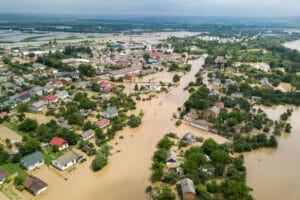Bomb Threats and Suspicious Packages
The recent bombing incidents in and around Austin, Texas serve as an unfortunate reminder that those responsible for all properties and facilities must remain vigilant and be prepared to respond to any bomb threat and/or suspicious package quickly and responsibly. Having a comprehensive risk mitigation plan in place can help save lives, and reduce the impact such a disaster might have on your business continuity. Actions taken during the first minutes of an emergency are critical. Your property needs to have a clearly defined, well-practiced emergency response plan, which includes clearly defined actions for employees and security personnel regarding the recognition of, response to, and reporting policy in the case of a suspicious person, action, or item and any bomb threats received.
When conducting a review of your policies and procedures, you must assess whether these policies and procedures (1) coincide with your organization’s current security goals and posture, (2) meet your facility’s perceived risk levels, and (3) meet best practice standards of the industry and like properties. You should also conduct your review in coordination with your security team, police, and/or local law enforcement officials, which will ensure a unified approach to incident management and facilitate collaborative protection efforts.
Elements of An Emergency Plan
• Life Safety
• Direction & Control
• Communication
• Recovery & Restoration
Every facility should develop and implement a crisis plan for protecting employees, visitors, contractors and anyone else within the property. If you don’t have a current or active response plan, the first action should be to conduct a risk assessment to identify potential vulnerabilities of your property. Developing an emergency plan begins with an understanding of what can happen so when an crisis occurs, you and your team are well prepared and can minimize potential damage.
10 Steps for Developing the Emergency Response Plan
- Establish standards, goals and/or objectives for your emergency response plan.
- Conduct a risk assessment to identify hazard and possible threat scenarios.
- Identify the availability and capabilities of resources for incident stabilization, including security staff, engineering team members, systems, and equipment available within your facility and from external sources.
- Engage public emergency services (e.g. fire, police and emergency medical services) to determine their response time to your facility, knowledge of your facility and its hazards, and their capabilities to stabilize an emergency at your facility.
- Determine if there are any city or state regulations pertaining to emergency planning.
- Identify your facility’s abilities and any restrictions regarding evacuation, shelter, shelter-in-place, or lockdown during an event.
- Develop clear, concise emergency procedures to address all identified threats.
- Coordinate emergency planning with public emergency services to stabilize incidents involving the hazards at your facility.
- Train personnel so they will be able to fulfill their roles and responsibilities.
- Practice your plan.
You may also feel free to contact us; we are more than happy to assist you in reviewing your facility’s emergency response plan, assist with developing a plan, or conduct response assessment to evaluate the effectiveness of your current plan during a test scenario or red-teaming exercise.
How Can We Help?
Contact us today to discuss how Chesley Brown can help navigate your organization navigate around ever-evolving threats, and mitigate your risk.
Sign up!
For industry-leading guides and analysis sign up for our blog below.
Latest News
How to Foster a Culture of Risk Awareness and Responsibility
In a world where new threats seem to emerge every single day, how can businesses protect themselves from the next danger hiding around the corner? Technology can help. So can guidance from trained security experts.…
Organizational Resilience: How Companies Can Navigate Security Threats — and Even Grow Stronger as a Result
It’s impossible to prepare for every single security threat facing your business. You can identify all the potential dangers that you’ve seen before —- petty crime, fire, natural disaster, fraud — and build detailed, fully…
Secure Your Business: The Top Business Security Systems for Property Managers
As a property manager, you are responsible for the security of your business premises and the assets that are within it. With criminal activities on the rise, ensuring maximum safety for your property is crucial…
How Security Can Help Property Managers Combat High Tenant Vacancy Rates
Across the country, office occupancy rates are the worst they’ve been in years. According to Cushman & Wakefield, national vacancy rates rose to 18.6% during the first quarter of 2023 — similar to what was seen during the worst of the COVID-19 pandemic.
Natural Disaster Preparation: 6 Keys for Safeguarding Your Company from Hurricanes, Storms, Fires and Other Emergencies
The question isn’t if your business will face a natural disaster. It’s when. Over the past 50 years, the world has seen a five-fold increase in weather-related disasters, according to the United Nations. And the…







